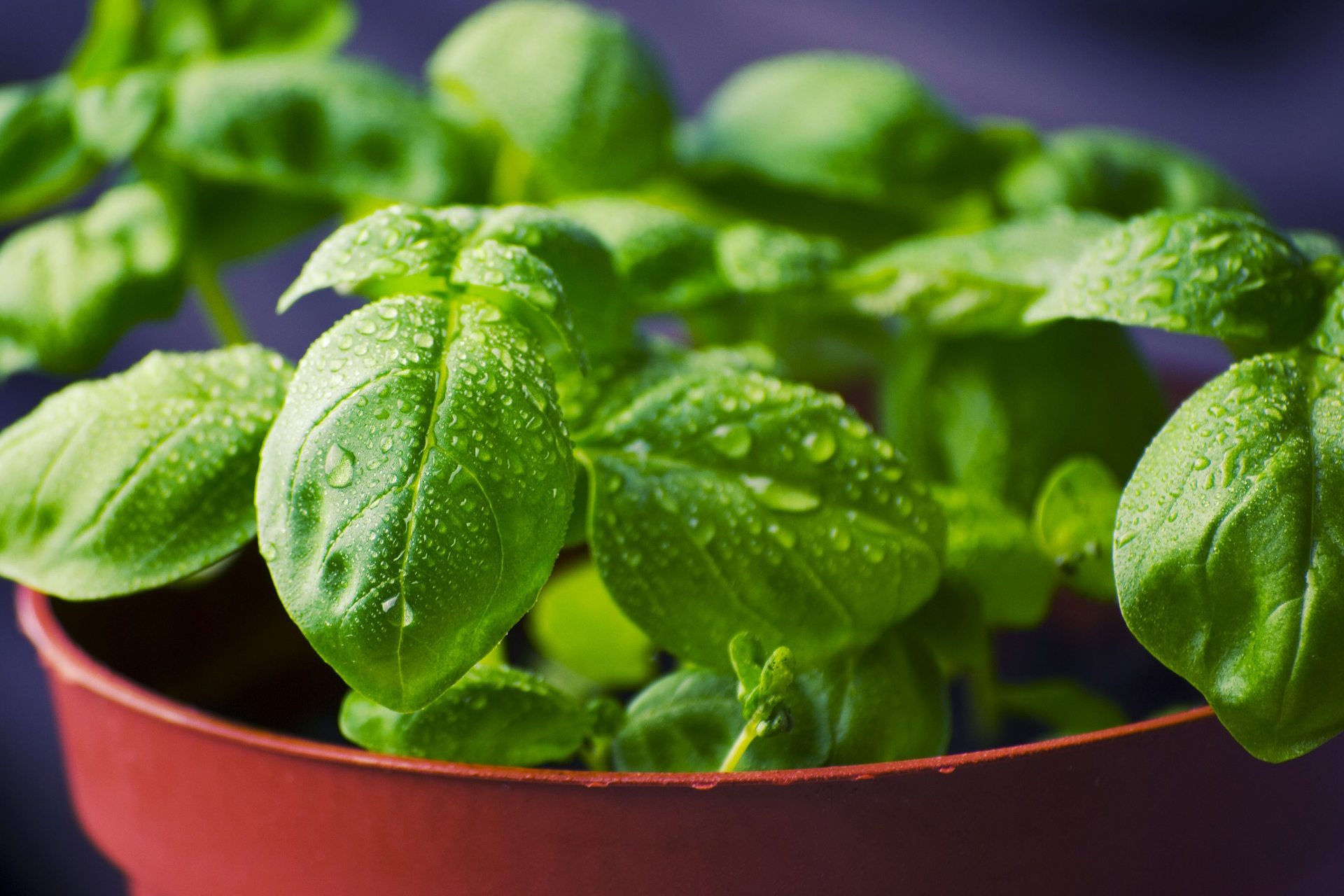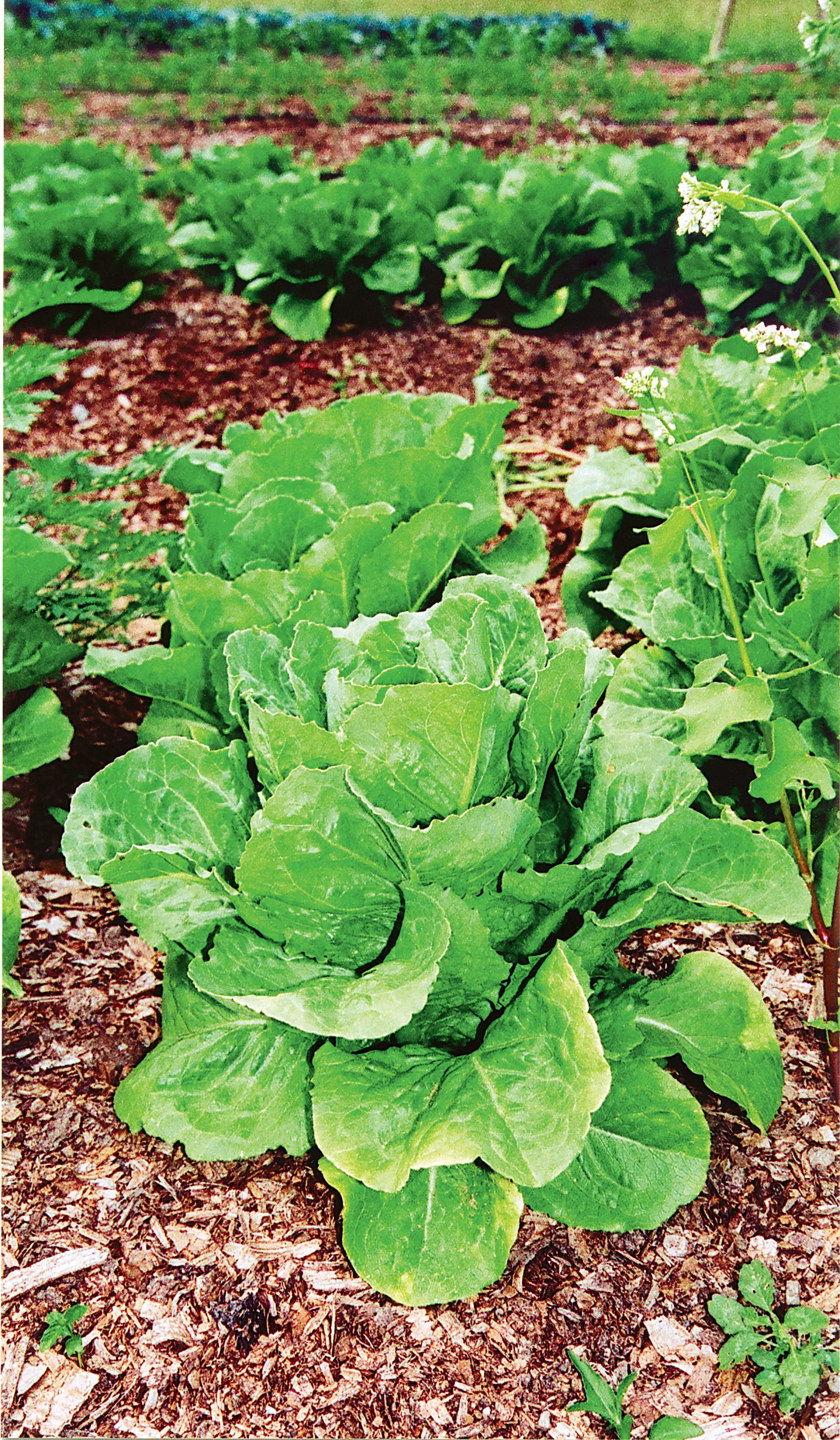Home > Lifestyle > Eats & Drinks > How to Make Fresh Produce Last Longer
How to Make Fresh Produce Last Longer
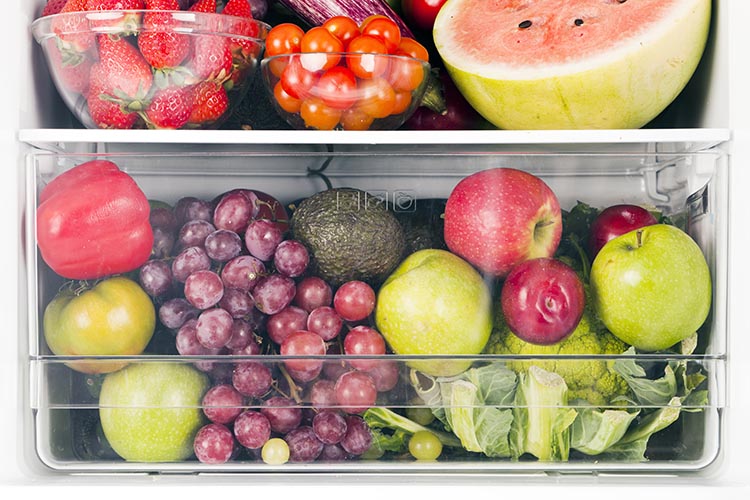
The warmer months bring an abundance of produce, but even those of us who love to snack on fruits and chow down on salads can’t eat everything before it starts to wilt, bruise or go bad. If you want to get the most mileage out of your next grocery, garden or farmers market haul, here are some tips on the best ways to make fresh produce last longer.
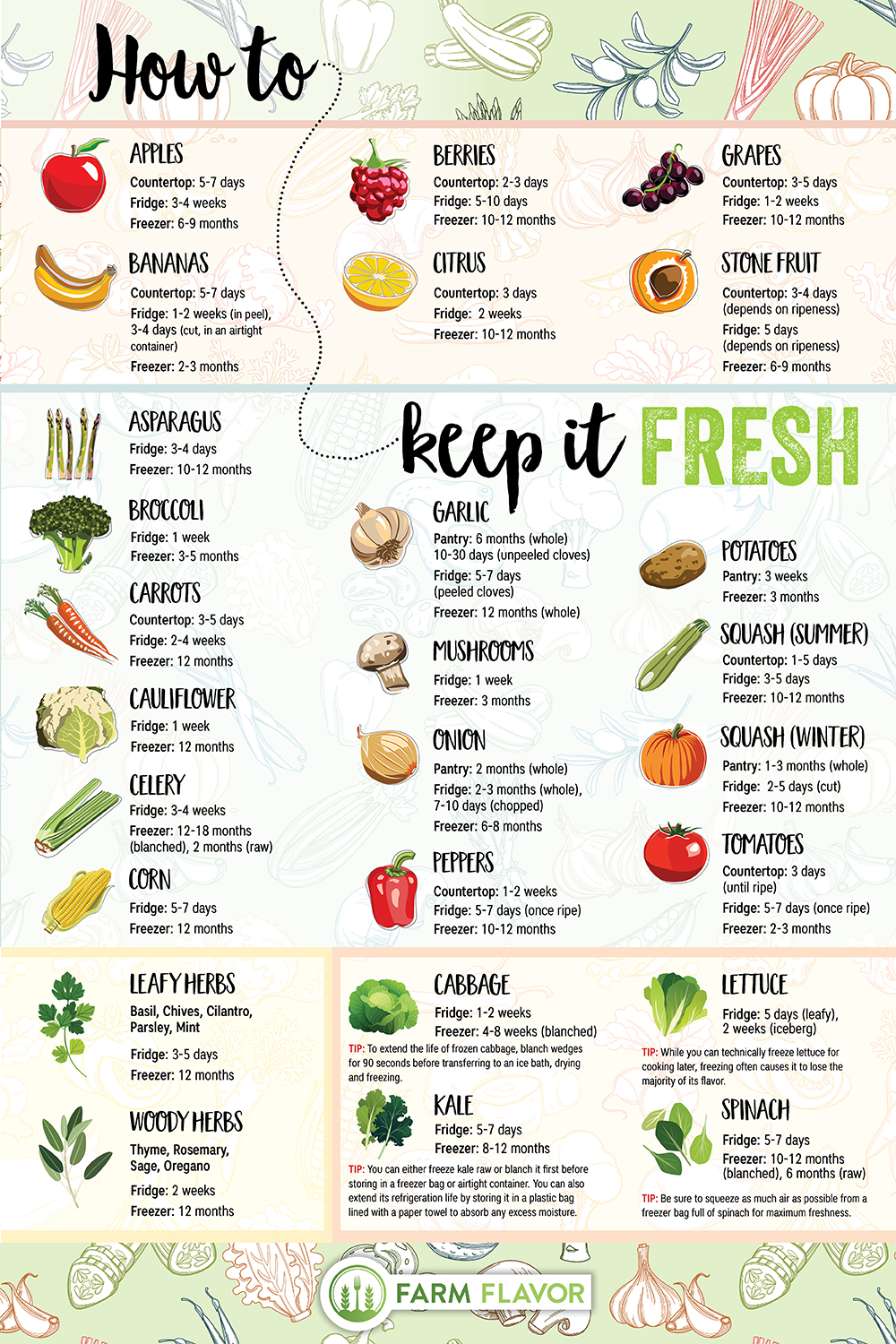 How to Make Fruits Last Longer
How to Make Fruits Last Longer
Berries
Countertop: 2-3 days
Fridge: 5-10 days
Freezer: 10-12 months
Tip: Rinse berries with a mixture of water and vinegar, let them dry completely and flash freeze them in a single layer on a baking sheet before transferring them to freezer bags.
Bananas
Countertop: 5-7 days
Fridge: 1-2 weeks (in peel), 3-4 days (cut, in an airtight container)
Freezer: 2-3 months
Tip: Peel and slice before freezing. Flash freezing banana slices in a single layer on a baking sheet before transferring to freezer bags or airtight containers will make it easy to remove small quantities at a time.
Stone fruit
Countertop: 3-4 days (depending on ripeness)
Fridge: 5 days (depending on ripeness)
Freezer: 6-9 months
Tip: Remove the pits from stone fruit and slice prior to freezing.
See more: How to Freeze Fresh Fruit
Apples
Countertop: 5-7 days
Fridge: 3-4 weeks
Freezer: 6-9 months
Tip: You can also can your apples, make them into applesauce or use them in baked goods that you can refrigerate or freeze.
Grapes
Countertop: 3-5 days
Fridge: 1-2 weeks
Freezer: 10-12 months
Tip: Frozen grapes make great snacks, but make sure to thoroughly rinse and dry grapes and break them into smaller clusters before storing in freezer bags or airtight containers.
Citrus
Countertop: 3 days
Fridge: 2 weeks
Freezer: 10-12 months
Tip: Storing refrigerated citrus in plastic bags or airtight containers can accelerate ripening and mold. Mesh bags or containers that allow air circulation work best. You can also wet pack your citrus in canning jars using water and juice or a water and sugar mixture.
See more: Can You Can? Canning and Pickling Basics
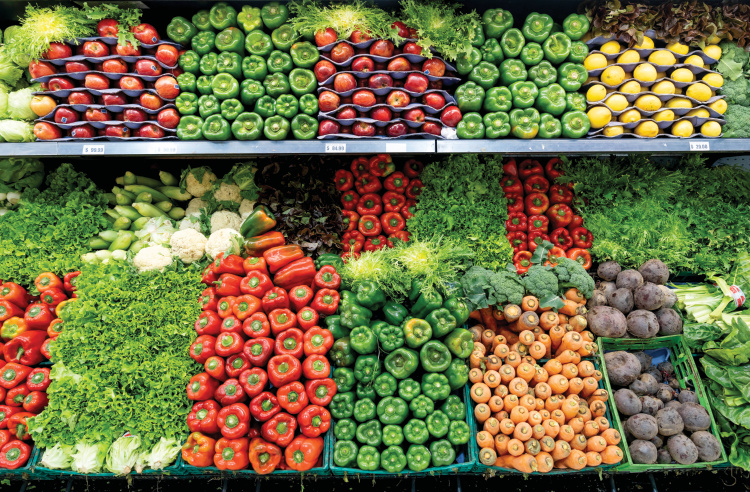
How to Make Vegetables Last Longer
Tomatoes
Countertop: 3 days (until ripe)
Fridge: 5-7 days (once ripe)
Freezer: 2-3 months
Tip: Freshness varies widely based on type and storage conditions. You can extend the shelf life of tomatoes through canning and making them into sauces, salsas and marinara.
Peppers
Countertop: 1-2 weeks
Fridge: 5-7 days (once ripe)
Freezer: 10-12 months
Tip: Before freezing peppers, wash and dry them and remove seeds and soft spots. You can slice them or cut the tops off, remove the seeds and place the tops back on to use for future stuffed peppers.
Potatoes
Pantry: 3 weeks
Freezer: 3 months
Tip: Store potatoes in a cardboard box, basket or mesh bag in the pantry, insulated garage or root cellar for longevity. Periodically check and remove any that have soft spots or bruises.
See more: How to Grow Your Own Sweet Potatoes
Garlic
Pantry: 6 months (whole), 10-30 days (unpeeled cloves)
Fridge: 5-7 days (peeled cloves)
Freezer: 12 months (whole)
Tip: Light and moisture will accelerate the aging process of garlic. Store them in a cool, dark place like a pantry or root cellar in a container that allows air circulation for best results. You can also peel, dehydrate and grind the cloves to make your own garlic seasoning.
Onion
Pantry: 2 months (whole)
Fridge: 2-3 months (whole), 7-10 days (chopped)
Freezer: 6-8 months
Tip: Onions stored in the pantry will last longer if air can circulate around them. Peel and chop them before freezing for best results.
Squash (summer)
Countertop: 1-5 days (depending on ripeness)
Fridge: 3-5 days
Freezer: 10-12 months
Tip: You can use zucchini in everything from soups and stews to breads, muffins and cakes. Freeze in small portions to use for baking.
See more: How to Blanch and Freeze Summer Squash and Zucchini
Squash (winter)
Pantry: 1-3 months (whole)
Fridge: 2-5 days (cut)
Freezer: 10-12 months
Tip: Peel, chop, and flash freeze winter squash on a baking sheet before transferring to freezer bags or airtight containers.
Carrots
Countertop: 3-5 days
Fridge: 2-4 weeks
Freezer: 12 months
Tip: Storing whole carrots in the fridge with their tops extends their freshness. Some people use the carrot greens in place of parsley or as an additional topping on salads. You can also keep carrot scraps in a freezer bag and use it to make your own stock or broth.
Celery
Fridge: 3-4 weeks
Freezer: 12-18 months (blanched), 2 months (raw)
Tip: Blanched celery will last longer in the freezer than celery that is frozen raw. You can also freeze celery scraps and use it to make homemade stock.
See more: 12 Vegetables and Herbs You Can Regrow From Scraps
Corn
Fridge: 5-7 days
Freezer: 12 months
Tip: If you leave fresh corn cobs on the counter, they will begin to dry out and change colors. If eating fresh, use within one to two days. Otherwise, store in the fridge or blanch and freeze.
Mushrooms
Fridge: 1 week
Freezer: 3 months
Tip: Mushrooms don’t do well with excess moisture, so storing them in a brown paper bag in the fridge is one of the best ways to keep them fresh.
Asparagus
Fridge: 3-4 days
Freezer: 10-12 months
Tip: Put your asparagus in a jar with a small amount of water to keep it fresh in the fridge for up to a week. You can also snap the stems, blanch and flash freeze them for extended longevity.
Broccoli
Fridge: 1 week
Freezer: 3-5 months
Tip: Loosely wrap broccoli in a moist paper towel before storing in the fridge to keep it fresh for as long as possible.
Cauliflower
Fridge: 1 week
Freezer: 12 months
Tip: Flash freeze washed and dried cauliflower florets before transferring to a freezer bag or airtight container to make it easier to use specific amounts later.
How to Make Herbs Last Longer
Leafy herbs (basil, chives, cilantro, parsley, mint)
Fridge: 3-5 days
Freezer: 12 months
Tip: Wrap leafy herbs in a moist paper towel or set them in a shallow glass of water while storing in the fridge.
See more: How to Freeze Pesto to Make the Most of Your Basil Harvest
Woody herbs (thyme, rosemary, sage, oregano)
Fridge: 2 weeks
Freezer: 12 months
Tip: If you have an excess of woody herbs, you can dry and store them in small glass containers to cook with later.
How to Make Leafy Greens Last Longer
Spinach
Fridge: 5-7 days
Freezer: 10-12 months (blanched), 6 months (raw)
Tip: Be sure to squeeze as much air as possible from a freezer bag full of spinach for maximum freshness.
Kale
Fridge: 5-7 days
Freezer: 8-12 months
Tip: You can either freeze kale raw or blanch it first before storing in a freezer bag or airtight container. You can also extend its refrigeration life by storing it in a plastic bag lined with a paper towel to absorb any excess moisture.
Cabbage
Fridge: 1-2 weeks
Freezer: 4-8 weeks (blanched)
Tip: To extend the life of frozen cabbage, blanch wedges for 90 seconds before transferring to an ice bath, drying and freezing.
Lettuce (head)
Fridge: 2 weeks (iceberg), 5 days (leafy)
Tip: While you can technically freeze lettuce for cooking later, freezing often causes it to lose most of its flavor.




